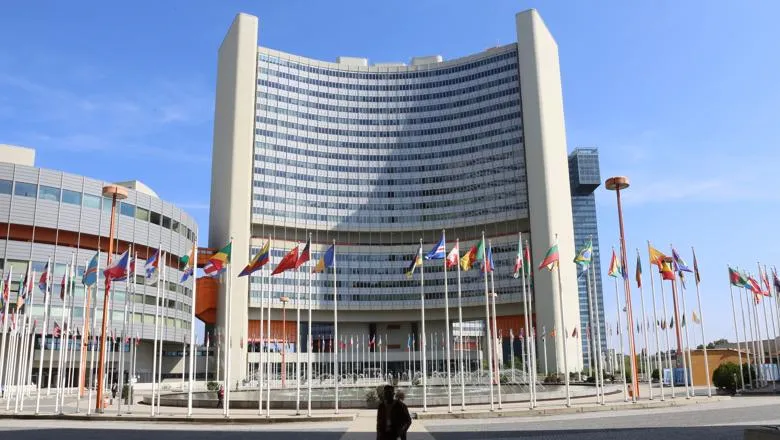Fundamentals of Physical Protection Workshop
The workshop is intended to introduce participants to nuclear threats posed by nonstate actors and the measures to mitigate them.
25 February 2020
King's College London's Centre for Science & Security Studies attended the 2020 International Conference on Nuclear Security at the International Atomic Energy Agency.

On 10-14 February, the Centre for Science & Security Studies (CSSS) attended the 2020 International Conference on Nuclear Security (ICONS) at the International Atomic Energy Agency (IAEA)’s headquarters in Vienna, Austria. CSSS was there to represent the King’s College London (KCL)-led Nuclear Security Culture Programme (NSCP), managed by the United Kingdom’s Department of Business, Energy and Industrial Strategy (BEIS), and for Dr Christopher Hobbs, Co-director of CSSS, to deliver a presentation on a unique paper on Reconceptualising Nuclear Security as a Business Enabler.
CSSS has led the implementation of the UK’s NSCP since its inception in September 2014. Delivered in an academia-industry consortium with the International Nuclear Services (INS) and Amport Risk, the NSCP forms a key part of the government’s Global Nuclear Security Programme (GNSP) and seeks to strengthen nuclear security policies and practice around the world. The NSCP is focused on exploring the concept of nuclear security culture and how this can be assessed and strengthened in various types of nuclear organisations and across different national contexts. Despite the existence of international guidance relating to nuclear security culture, this remains a relatively unexplored area of both theory and practice.
In representing the NSCP, CSSS showcased a range of activities conducted under the programme, both within the UK and abroad in partnership with local stakeholders. These activities include bespoke training courses and workshops, the development of related educational resources, support for new academic programmes in the area of nuclear security, research into nuclear security implementation and direct support for efforts to self-assess and enhance nuclear security culture at individual organisations. Over the past 5 years, more than 30 activities have been run under the NSCP in 10 countries.
Additionally, through an independent initiative, CSSS is developing Nuclear Security Culture Playing Cards to help socialise and prompt needed conversations around issues affecting facilities holding nuclear and radiological materials. These cards provide 52 questions drawing on lessons from past incidences, while also incorporating nuclear security best practices that were refined in consultation with industry experts. Each card will contain a link to a unique webpage where users can access further information, relevant international guidance and other authoritative references. Christopher Hobbs had the opportunity to discuss the NSCP and the development of these innovative playing cards with BEIS Minister Nadhim Zahawi.
On 11 February, Christopher Hobbs’s presentation on Reconceptualising Nuclear Security as a Business Enabler highlighted the potential benefits of taking a business-orientated approach to nuclear security and the opportunities and challenges that may offer. It draws on experiences of UK industry and activities conducted under the GNSP, which has been designing and delivering international nuclear security education, training and support for more than 20 years.
Finally, to close off the week, Christopher Hobbs, Ben Whittard of INS and George Foster of Amport Risk delivered an interactive presentation on the what, why and how of nuclear security culture, highlighting a number of key aspects that underly nuclear security.
To learn more about the NSCP and other CSSS activities, please visit www.kcl.ac.uk/csss/policy-engagement.
The workshop is intended to introduce participants to nuclear threats posed by nonstate actors and the measures to mitigate them.